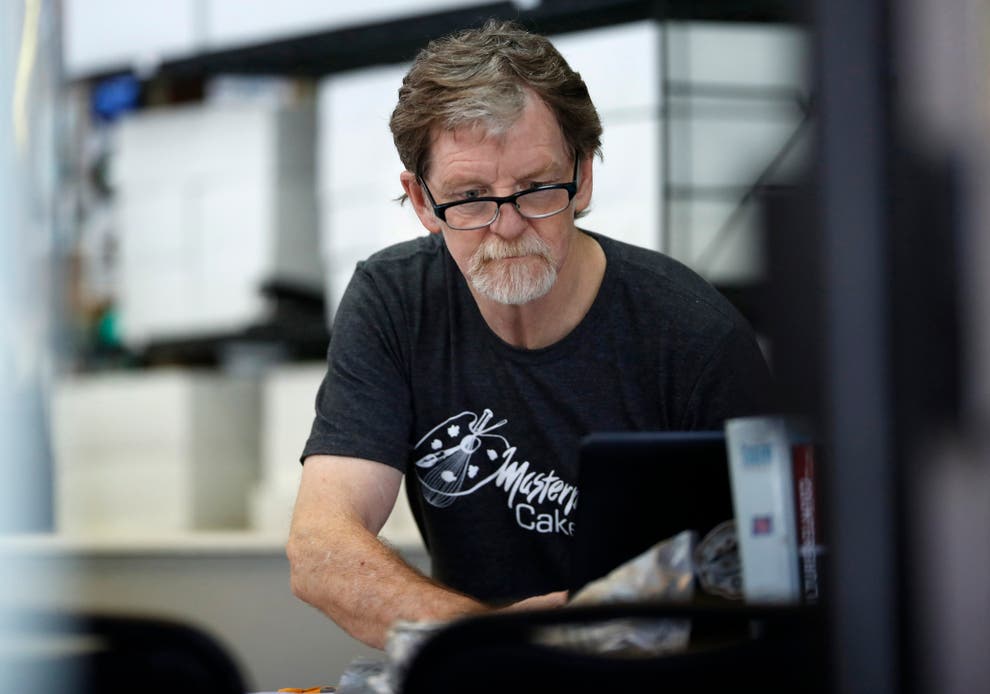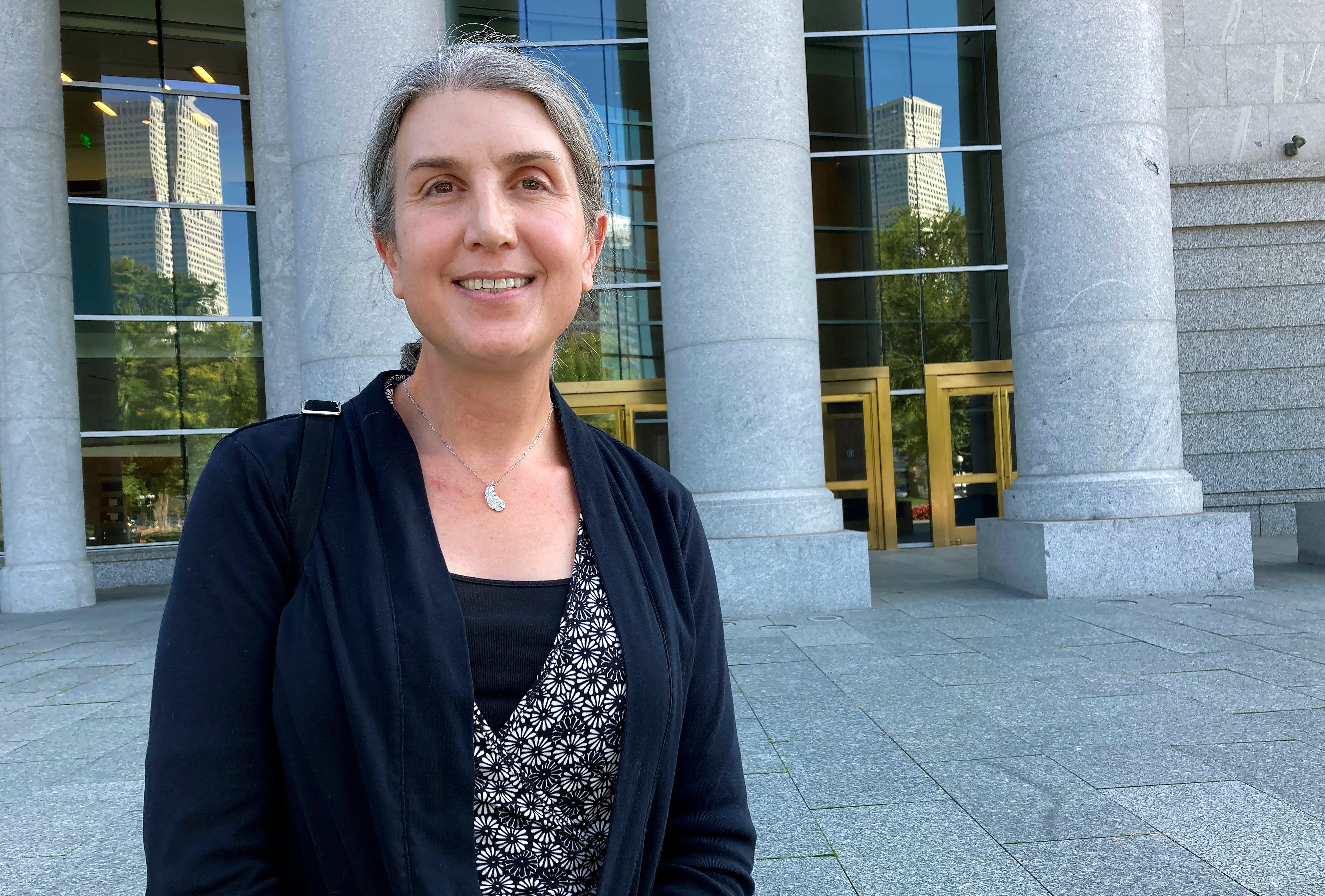Supreme Court to hear arguments over baking and free speech in transgender cake case
The Court previously ruled that the cake – with no writing – was not a form of speech

Your support helps us to tell the story
From reproductive rights to climate change to Big Tech, The Independent is on the ground when the story is developing. Whether it's investigating the financials of Elon Musk's pro-Trump PAC or producing our latest documentary, 'The A Word', which shines a light on the American women fighting for reproductive rights, we know how important it is to parse out the facts from the messaging.
At such a critical moment in US history, we need reporters on the ground. Your donation allows us to keep sending journalists to speak to both sides of the story.
The Independent is trusted by Americans across the entire political spectrum. And unlike many other quality news outlets, we choose not to lock Americans out of our reporting and analysis with paywalls. We believe quality journalism should be available to everyone, paid for by those who can afford it.
Your support makes all the difference.The Colorado Supreme Court will hear arguments on Tuesday in a lawsuit against a Christian baker who refused to make a cake celebrating a gender transition.
The case is one of three from the state that have pitted LGBTQ+ civil rights against First Amendment rights.
Two cases have centered on baker Jack Phillips, who in 2012 refused to bake a cake for a gay couple’s wedding. Phillips partially prevailed before the US Supreme Court in that case in 2018.
Phillips was later sued by Autumn Scardina, a transgender woman, after Phillips and his suburban Denver bakery refused to make a pink cake with blue frosting for her birthday that also celebrated her gender transition.
Scardina, an attorney, said she brought the lawsuit to “challenge the veracity” of Phillips’ statements that he would serve LGBTQ+ customers.
That case to be argued before the Colorado Supreme Court involves the state’s anti-discrimination law against refusing to provide services based on protected characteristics such as race, religion or sexual orientation.
The Colorado Court of Appeals previously sided with Scardina, ruling that the cake — on which Scardina did not request any writing — was not a form of speech.

The appeals court noted that Phillips’ shop initially agreed to make the cake but then refused after Scardina explained she was going to use it to celebrate her gender transition, with the blue exterior and pink interior reflecting her male-to-female transition.
“We conclude that creating a pink cake with blue frosting is not inherently expressive and any message or symbolism it provides to an observer would not be attributed to the baker,” read the unanimous ruling by the three-judge appeals court in 2023.
The court also found that the anti-discrimination law did not violate business owners’ right to practice or express their religion.
Phillips has maintained that the cakes he creates are a form of speech protected under the First Amendment.
Another recent case in Colorado centers on freedom of speech and LGBTQ+ rights.
Last summer, the US Supreme Court ruled in favor of a Colorado graphic artist who didn’t want to design wedding websites for same-sex couples.
Graphic artist Lorie Smith, who like Phillips is represented by the Alliance Defending Freedom, challenged the same state law. The court’s conservative majority said forcing her to create websites for same-sex weddings would violate her free speech rights.
Both sides in the dispute over Scardina’s cake order think the new US Supreme Court ruling will bolster their arguments.